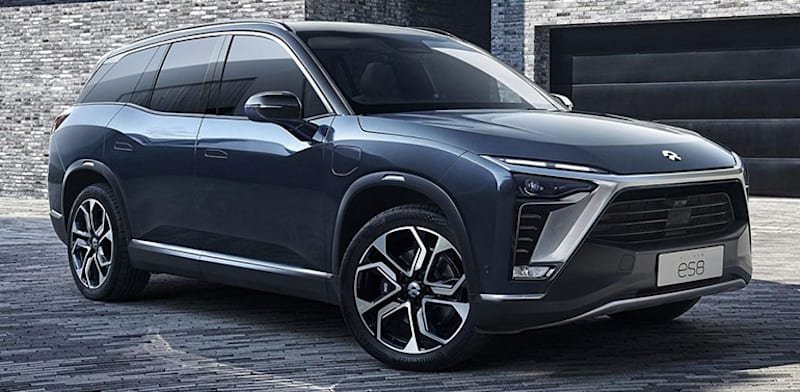NIO cars arriving in Israel for Mobileye robotaxi trials

In the coming few days, the first consignment of Chinese manufacturer NIO's ES8 SUV electrical cars will reach Israel. The consignment is part of an order of dozens of cars by advanced driver assistance systems Mobileye, which the Intel-owned company will use in the Tel Aviv metropolitan area, for advanced trials of its robotaxi (self-driving taxis) project, which will begin next year.
The project, which was launched three years ago, was originally planned to be conducted in cooperation with Volkswagen, using its electric ID.Buzz microbus but due to delays in its manufacture, it was decided to move forward based on NIO's electric vehicles. Mobileye will install its autonomous kit on the NIO cars after they reach Israel, and when the VW microbus is available, the platform will be transferred to the ID.Buzz.
The autonomous system developed by Mobileye is planned to support Level 4 autonomous driving, in which the cars travel on set routes without intervention by a human driver based on a platform that includes sensors, advanced processors, precise mapping, and artificial intelligence. However, it still remains unclear if and when Israeli regulation will allow the vehicles to travel around on Israel's roads without the presence of a driver to supervise the vehicle, which is the essence of the business model for the robotaxis.
In the preliminary trials, the vehicles will drive around central Tel Aviv on a 15 kilometer route between Ibn Gbriol Street and Hayarlon Street, with no passengers but in the first stage with a test officer in the car. In the more advanced stages of the trial, the routes will be expanded to encompass 33 kilometers of roads including sections of the Ayalon Highway and South Tel Aviv. In the pre-commercial stage, routes will be expanded to include 111 kilometers of roads (in an area of 13.4 square kilometers) and will include most of the busiest roads and routes for public transport in Tel Aviv and environs.
The commercial stage will include transporting passengers for payment and is scheduled to happen in 2023. According to the original plan, the service will subsequently be extended to all Israel's major cities.
The NIO vehicles being used for the trial are from the Chinese company's newest generation of cars, which were recently launched and have received the full WVTA European marketing approval. The cars can carry up to seven passengers and have two engines with a combined power of 652 ccs and a full battery range of 450 kilometers, meeting European standards. The vehicles sell in Europe for between €59,000 and €72,000.
Many companies in Israel have expressed interest over the past two years in importing NIO cars to Israel but the Chinese company has not shown any readiness to market them in Israel, while Norway is the only new market that NIO plans entering this year. NIO prefers to market its cars directly rather than through dealers.
As far as is known, Mobileye has been granted a temporary license by the Ministry of Transport to import the NIO cars and they will be sent back abroad after the trial. Some of the NIO cars will be sent on to Germany for robotaxi trials, in parallel to the trials in Israel.
Related News
